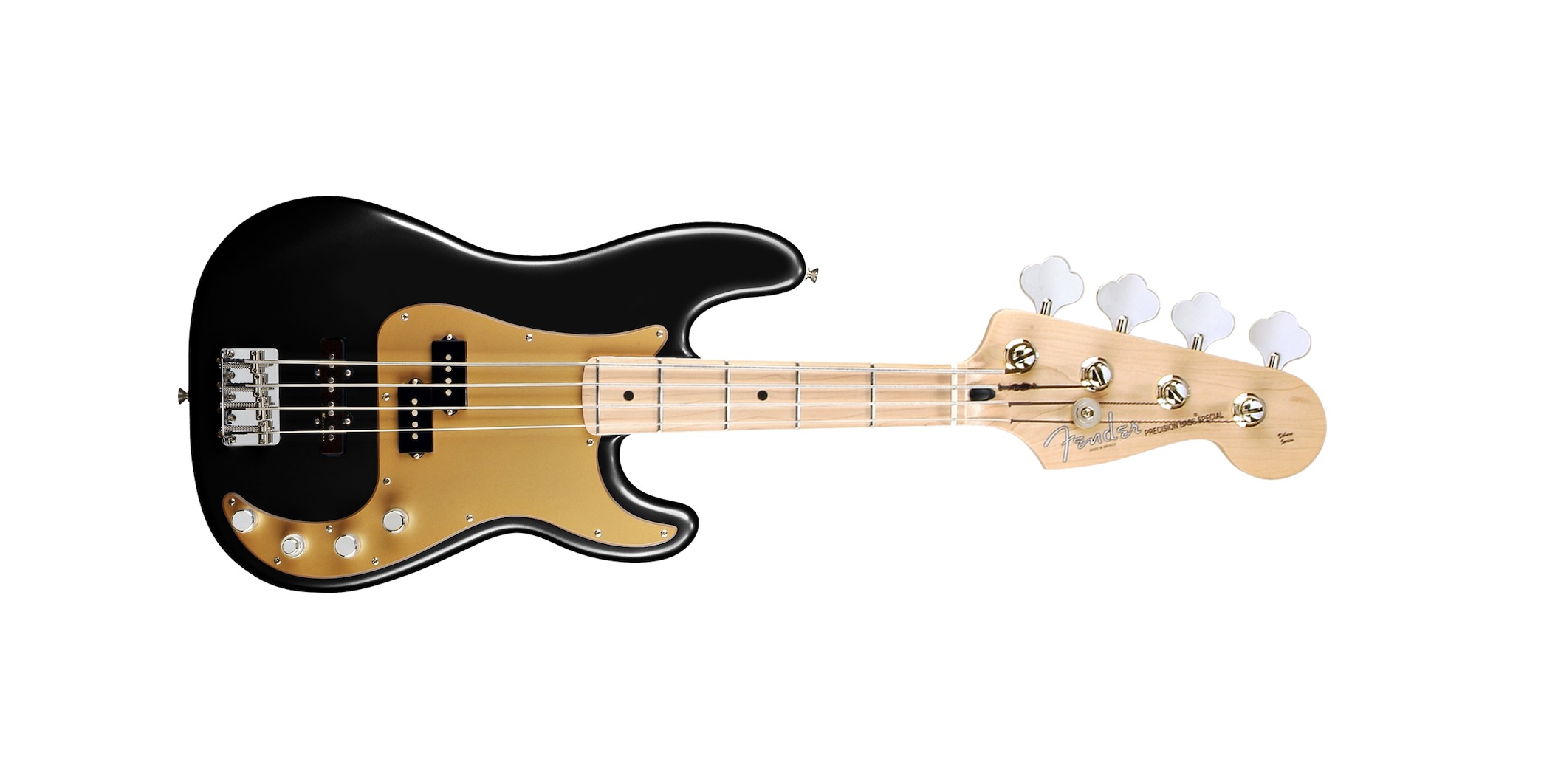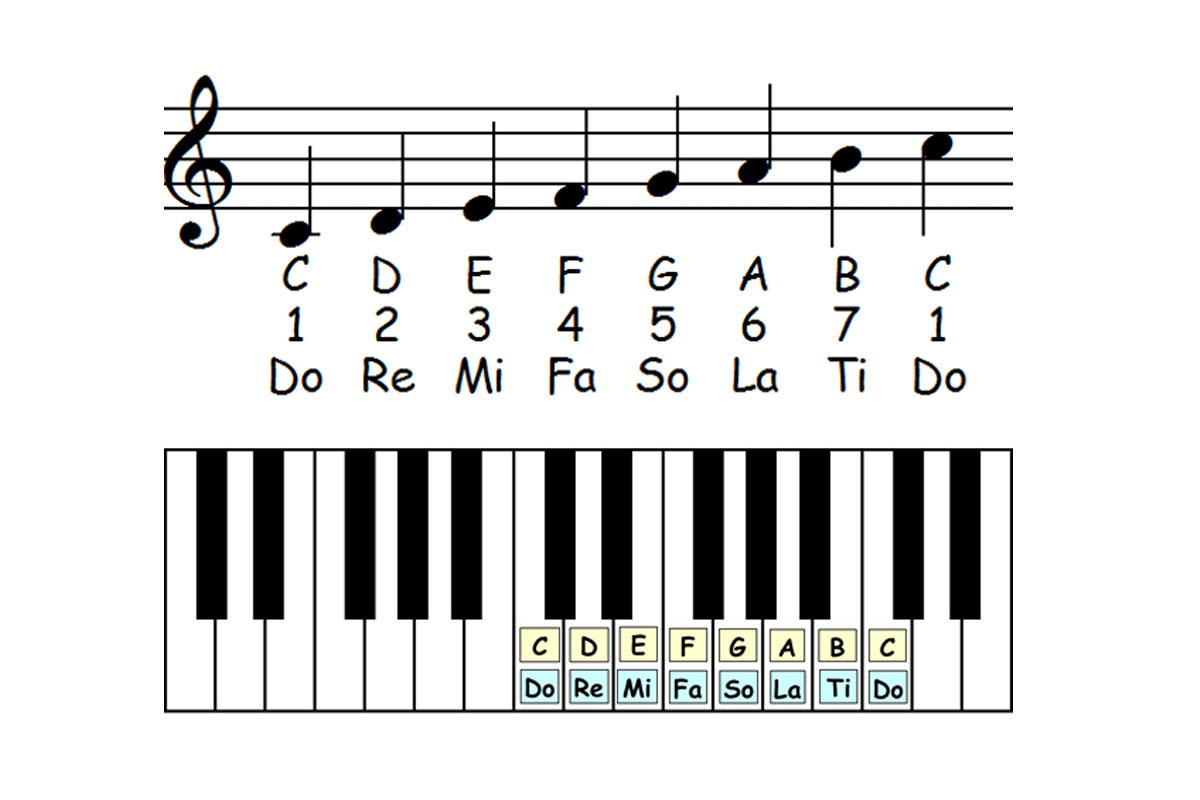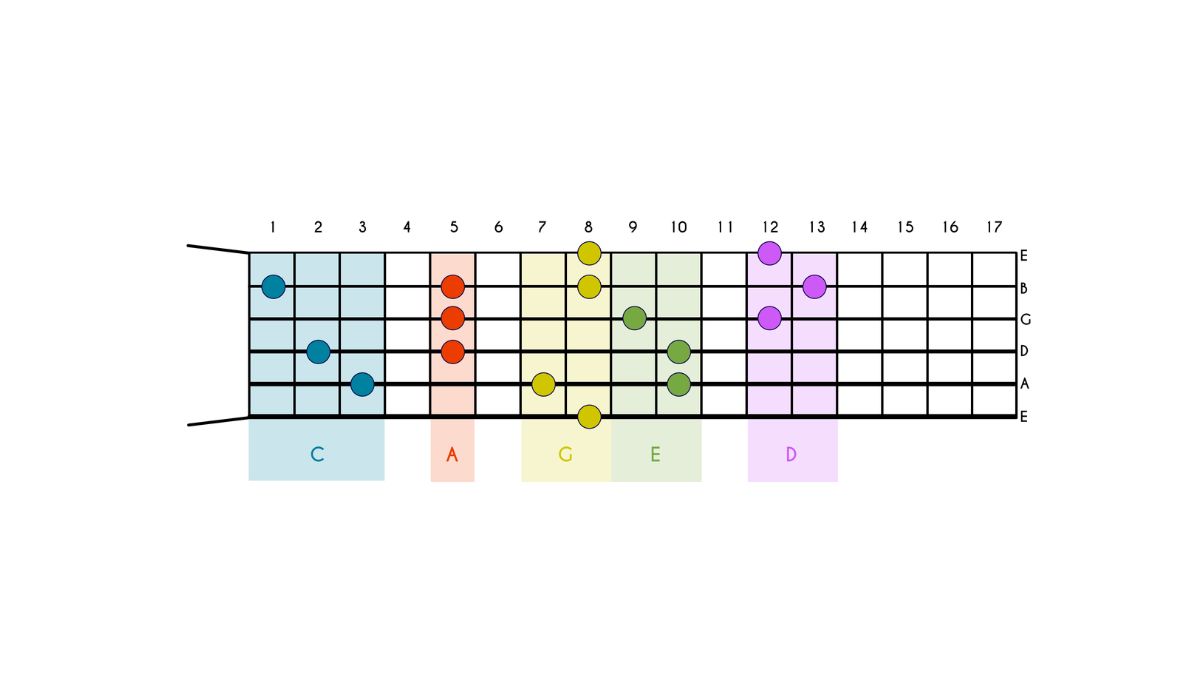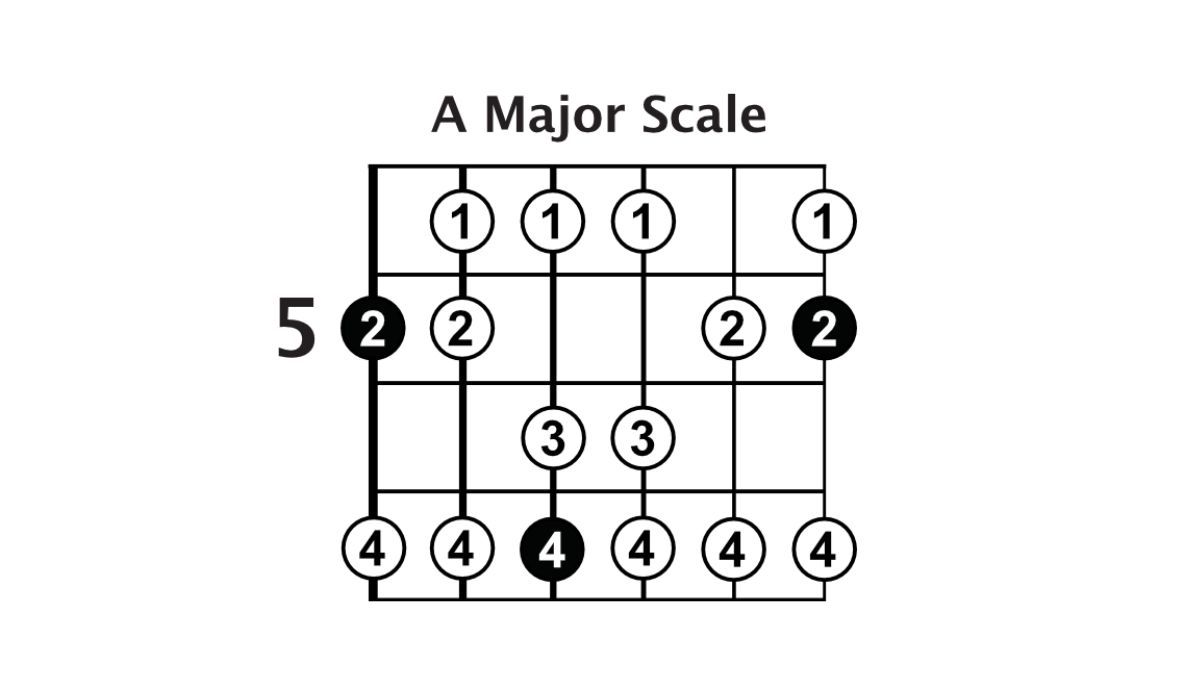Home>Instruments>Bass>What Is A Short Scale Bass


Bass
What Is A Short Scale Bass
Modified: January 28, 2024
Discover the benefits of a short scale bass and why it's perfect for beginners or those seeking a more comfortable playing experience. Upgrade your bass playing with a shorter scale length.
(Many of the links in this article redirect to a specific reviewed product. Your purchase of these products through affiliate links helps to generate commission for AudioLover.com, at no extra cost. Learn more)
Table of Contents
Introduction
When it comes to bass guitars, most people are familiar with the standard long-scale basses that are commonly seen in bands and music videos. However, there is another type of bass that is gaining popularity among musicians – the short scale bass. A short scale bass is a smaller version of the traditional bass guitar, with a shorter neck length and smaller overall size. In this article, we will explore what a short scale bass is, the benefits of owning one, the differences between short scale and long scale basses, popular short scale bass models, how to choose the right short scale bass for you, and tips for playing this unique instrument.
A short scale bass is designed with a shorter neck length, typically around 30 inches, compared to the standard 34-inch neck found on long scale basses. This reduced scale length makes the instrument more compact and easier to play, especially for musicians with smaller hands or those who prefer a lighter and more comfortable instrument. Despite the shorter scale length, short scale basses still deliver a rich and deep tone, making them suitable for a wide range of musical genres.
So why would someone choose a short scale bass over a long scale bass? One of the main advantages is the ease of playability. The shorter neck allows for a shorter distance between frets, making it easier to navigate the fretboard and reach different notes and chords. This can be particularly beneficial for beginners who are just starting to learn the instrument. Additionally, the reduced string tension on a short scale bass makes it easier to bend strings and execute techniques such as vibrato.
The difference in size between a short scale and long scale bass is also worth considering. Short scale basses are more compact and lighter in weight, which makes them more comfortable to hold and transport. This can be advantageous for musicians who travel frequently or perform in small venues where space is limited. The smaller size also makes the short scale bass an ideal choice for younger players or individuals with smaller physiques.
Definition of a Short Scale Bass
A short scale bass is a type of bass guitar that features a shorter neck length compared to a standard long scale bass. The neck length of a short scale bass typically measures around 30 inches, compared to the standard 34-inch neck found on long scale basses.
The shorter neck length of a short scale bass results in a more compact and manageable instrument. This makes it easier to play, especially for musicians with smaller hands or those who prefer a lighter and more comfortable instrument.
Short scale basses are designed to provide the same deep and powerful tones as their long scale counterparts. Despite their shorter neck length, they can still produce a rich and resonant low end, making them suitable for a wide range of musical styles and genres.
While the neck length is the most defining characteristic of a short scale bass, there are other physical differences that set them apart from long scale basses. Short scale basses often have a smaller body size, which contributes to their overall comfort and portability. The frets on a short scale bass are also closer together, allowing for easier navigation of the fretboard.
Short scale basses are not limited to any specific type or style. They can be found in various configurations, including four-string, five-string, and even six-string models. They are available in different price ranges, catering to both beginners and professional musicians.
It’s worth noting that the sound and playability of a short scale bass can be influenced by other factors, such as the type of wood used for the body and neck, the type of pickups, and the electronics onboard. These elements will contribute to the overall tone and character of the instrument, allowing musicians to customize their sound to their preferences.
Overall, a short scale bass offers a more compact and comfortable playing experience without compromising on tone and versatility. Whether you’re a beginner, a musician with smaller hands, or someone who values portability, a short scale bass can be an excellent choice for your musical endeavors.
Benefits of a Short Scale Bass
Choosing a short scale bass over a long scale bass offers several benefits that can enhance your playing experience. Here are some of the key advantages of owning a short scale bass:
- Easier to Play: One of the most significant benefits of a short scale bass is its ease of playability. The shorter neck length reduces the stretch between frets, making it easier to reach different notes and chords. This can be particularly beneficial for beginners or musicians with smaller hands, allowing them to navigate the fretboard with greater comfort and dexterity.
- Comfortable and Lightweight: Short scale basses are generally more compact and lighter in weight compared to their long scale counterparts. This makes them more comfortable to hold and play for extended periods, reducing the strain on your back, neck, and shoulders. Their smaller size also makes them easier to transport, making them an ideal choice for gigging musicians or those who frequently travel with their instruments.
- Improved String Tension: The reduced scale length of a short scale bass results in lower string tension. This lower tension makes it easier to press down on the strings, reducing finger fatigue and making techniques like bending and vibrato more comfortable to execute. It can also be gentler on your fingertips, especially for beginners who are still building up finger strength.
- Unique Tone: Short scale basses can produce a unique tone that differs from long scale basses. The slightly shorter vibrating length of the strings can result in a warmer and more rounded sound, with a slightly different attack and sustain. This can be advantageous for certain musical styles, such as blues, jazz, or lighter genres where a softer and more mellow tone is desired.
- Versatile Sound: Despite their smaller size, short scale basses can still deliver a wide range of tones and styles. From punchy and aggressive tones for rock and metal to smooth and deep tones for funk and R&B, short scale basses offer versatility and flexibility in their sonic capabilities.
These benefits make short scale basses a popular choice among musicians of all levels and genres. Whether you’re a beginner looking for an easier-to-play instrument, a professional seeking a unique tone, or someone who values comfort and portability, a short scale bass can be a valuable addition to your musical arsenal.
Differences between Short Scale and Long Scale Basses
While both short scale and long scale basses serve the same purpose of providing deep and resonant bass tones, there are several key differences between the two. Understanding these differences can help you choose the right bass for your playing style and preferences. Here are some of the main distinctions between short scale and long scale basses:
- Neck Length: The most prominent difference is the neck length. A short scale bass typically has a neck length of around 30 inches, while a long scale bass has a standard neck length of 34 inches. This shorter neck length on the short scale bass makes it more comfortable to play for individuals with smaller hands or those who prefer a more compact instrument.
- Fret Spacing: Due to the shorter neck length, short scale basses have narrower fret spacing compared to long scale basses. This narrower spacing can make it easier to navigate the fretboard and reach notes and chords, especially for players with smaller hands or those who are new to the instrument.
- String Tension: Short scale basses typically have lower string tension compared to long scale basses. The reduced string tension allows for easier string bending and executing techniques like vibrato. It can also provide a more comfortable playing experience, as less finger strength is required to press down on the strings.
- Tone: The shorter vibrating length of the strings on a short scale bass can result in a slightly different tone compared to a long scale bass. Short scale basses often produce a warmer and rounder sound, with a slightly different attack and sustain. However, the overall tonal difference may be subtle and can be further influenced by factors such as the type of wood used, pickups, and electronic components.
- Size and Weight: Short scale basses are generally more compact and lighter in weight compared to long scale basses. This can make them more comfortable to hold and play, as well as easier to transport. They are ideal for musicians who prioritize portability or perform in small venues where space is limited.
- Availability and Variety: Long scale basses are more common and widely available compared to short scale basses. As a result, there are more options and variations to choose from in terms of brands, models, and price ranges. However, the popularity of short scale basses has been growing, and more manufacturers are now offering a range of short scale options to cater to different player preferences.
Ultimately, the choice between a short scale and long scale bass depends on your individual playing style, physical requirements, and tonal preferences. It’s important to try out both types of basses, if possible, to determine which one feels and sounds the best for you. Whether you choose the shorter and more compact experience of a short scale bass or the traditional and versatile nature of a long scale bass, both can provide countless hours of enjoyment and musical expression.
Popular Short Scale Bass Models
As the popularity of short scale basses continues to rise, more manufacturers are offering a variety of models to meet the demand of musicians looking for a compact and comfortable playing experience. Here are some of the popular short scale bass models that have garnered attention and praise:
- Fender Mustang Bass: The Fender Mustang Bass is an iconic short scale bass that has been a favorite among musicians for decades. It features a classic design with a 30-inch scale length, vintage-style pickups, and a versatile tonal range. The Fender Mustang Bass delivers the punchy, yet smooth sound that Fender is known for.
- Gibson SG Bass: The Gibson SG Bass is a short scale bass that offers a compact and lightweight design, making it comfortable to play for extended periods. With its dual humbucking pickups, versatile controls, and iconic SG body shape, this bass delivers a powerful and distinctive tone suitable for a range of genres.
- Ibanez Talman TMB30: The Ibanez Talman TMB30 is a budget-friendly short scale bass that doesn’t compromise on quality. It features a 30-inch scale length, dynamic pickups, and a sleek, retro-inspired design. The TMB30 offers a comfortable and versatile playing experience at an affordable price point.
- Squier Jaguar Bass: The Squier Jaguar Bass is a popular option for those seeking a short scale bass without breaking the bank. It features a compact 30-inch scale length, dual J-style pickups, and a comfortable body shape. The Squier Jaguar Bass delivers classic tone and style at an accessible price point.
- Gretsch G2220 Junior Jet Bass II: The Gretsch G2220 Junior Jet Bass II is a short scale bass that combines vintage-inspired aesthetics with modern playability. With its shorter 30.3-inch scale length, powerful humbucking pickups, and distinctive Gretsch style, this bass offers a unique sonic character and stage presence.
While these are just a few examples, many other reputable brands offer high-quality short scale basses. It is important to explore different models, try them out, and consider factors such as tonal preferences, playability, and budget before making a final decision.
Furthermore, it’s worth noting that short scale basses are not limited to specific brands or models. Many manufacturers produce their own versions of short scale basses, catering to various playing styles and genres. Whether you prefer the punchy and aggressive tone of a Fender Precision Bass or the smooth and melodic sound of a Hofner Violin Bass, you can find a short scale bass that suits your musical needs.
Ultimately, the choice of a short scale bass model depends on your personal preferences and intended musical style. It’s important to find a bass that feels comfortable to play and provides the tone and versatility you desire, allowing you to fully express your musical creativity.
How to Choose a Short Scale Bass
Choosing the right short scale bass is essential to ensure a comfortable playing experience and the desired tone. Here are some factors to consider when selecting a short scale bass:
- Playability: The first thing to consider is how the bass feels in your hands. Look for a comfortable neck shape and size that suits your hand size and playing style. Ensure that the fret spacing feels comfortable and allows for easy maneuverability along the fretboard.
- Tonal Preferences: Consider the desired sound and tone you want to achieve. Short scale basses, like their long scale counterparts, come in various wood types and pickup configurations, each offering a unique tonal characteristic. Try out different models to find the one that matches your musical style and preferences.
- Build Quality: Assess the overall build quality and craftsmanship of the bass. Look for solid construction, well-aligned frets, and smooth action on the neck and bridge. A well-built bass will not only provide better playability but also ensure durability and reliability.
- Budget: Set a realistic budget for your short scale bass. Prices can vary greatly depending on the brand, model, and features of the bass. Determine your budget range and explore options within that range to find a bass that offers the best value for your money.
- Brand Reputation: Research the reputation and reviews of different brands and models. Well-established brands often have a history of producing high-quality instruments, but don’t overlook newer or boutique brands that may offer unique features or exceptional craftsmanship. Reading reviews and seeking recommendations can provide insight into the overall quality and performance of a specific model.
- Try Before You Buy: If possible, visit a music store and physically try out different short scale basses. Test how they feel, play, and sound. Pay attention to the comfort of the body shape, the playability of the neck, and the tonal characteristics. Remember that personal preference plays a significant role in finding the right instrument.
- Consult with Professionals: Seek advice from experienced bassists or music store professionals who can provide guidance based on their knowledge and expertise. They may be able to recommend specific brands or models based on your playing style, genre preferences, and budget.
Ultimately, selecting a short scale bass is a personal decision. Take your time to explore different options, consider your playing needs, and trust your instincts. Finding the right short scale bass will not only enhance your playing experience but also inspire and facilitate your musical journey.
Tips for Playing a Short Scale Bass
Playing a short scale bass offers a unique experience compared to its long scale counterpart. Here are some tips to help you make the most of your short scale bass playing:
- Adapt Your Technique: Due to the shorter neck length and narrower fret spacing, you may need to adjust your playing technique. Take some time to familiarize yourself with the closer frets and experiment with hand positions and finger placements to find what feels most comfortable and allows for efficient playing.
- Practice Hand Positioning: Pay attention to your hand positioning on the shorter fretboard. Ensure that your fingers are placing the strings down cleanly and accurately. This may require some practice and adjustment, but over time, you will develop muscle memory and improve your accuracy.
- Explore Different Tonal Possibilities: Experiment with different playing styles and techniques to explore the tonal possibilities of your short scale bass. Due to the shorter scale length, you may find that certain techniques such as string bending and vibrato are easier to execute, allowing for expressive playing and unique tonal variations.
- Consider String Gauge: Experiment with different string gauges to find the ones that work best for your playing style and the desired tone. Different string gauges can make a difference in the overall feel and playability of your bass, so don’t be afraid to try out different options to find your preferred sound and comfort.
- Pay Attention to Setup: Keep your short scale bass properly set up to ensure optimal playability. Regularly check the intonation, action (string height), and neck relief. Adjustments may be necessary to maintain proper playing condition and to avoid any unwanted buzzing or discomfort while playing.
- Explore New Genres and Styles: Short scale basses are versatile instruments and can be used in various genres and musical styles. Take advantage of the unique tone and playability of your short scale bass to explore new genres and experiment with different musical styles. This can open up new creative possibilities and help you grow as a musician.
- Practice Slowly and Gradually Increase Speed: When learning new songs or complex techniques, start by practicing slowly and gradually increase your speed as you gain proficiency. This allows your muscle memory to develop effectively and helps maintain accuracy and control while playing.
- Experiment with Different Playing Techniques: Don’t limit yourself to a single playing technique. Explore different techniques such as fingerstyle, slap and pop, thumb plucking, or using a pick. Each technique can produce unique sounds and cater to different musical styles, so be open to experimenting and finding what works best for you.
Remember, the key to mastering any instrument is practice and perseverance. Embrace the unique qualities of your short scale bass and enjoy the journey of becoming a skilled and versatile bassist. With dedication and the right approach, your short scale bass can be a source of inspiration and musical expression.
Conclusion
Short scale basses offer a compact and comfortable playing experience while delivering the deep, resonant tones associated with traditional bass guitars. Their shorter neck length and narrower fret spacing make them ideal for players with smaller hands or those seeking a more manageable instrument. Choosing a short scale bass allows for easier playability, improved string tension, and a unique tone that can enhance your musical expression.
When selecting a short scale bass, consider factors such as playability, tonal preferences, build quality, budget, and brand reputation. It’s important to try out different models and consult with professionals to find the right bass that aligns with your playing style and musical aspirations.
As you delve into playing your short scale bass, adapt your technique to accommodate the smaller fretboard, practice hand positioning, and experiment with different tonal possibilities. Pay attention to setup, string gauge, and explore new genres and styles to fully maximize the potential of your instrument.
In conclusion, a short scale bass is a valuable addition to any bass player’s arsenal. Its compact size, comfortable playability, and unique tone offer a fresh and inspiring playing experience. Whether you’re a beginner looking for an easier-to-play instrument, a musician with smaller hands, or someone who values portability and versatility, a short scale bass can unlock new musical possibilities and add a distinctive flavor to your performances. So go ahead, explore the realm of short scale basses, and let your creativity flourish!











